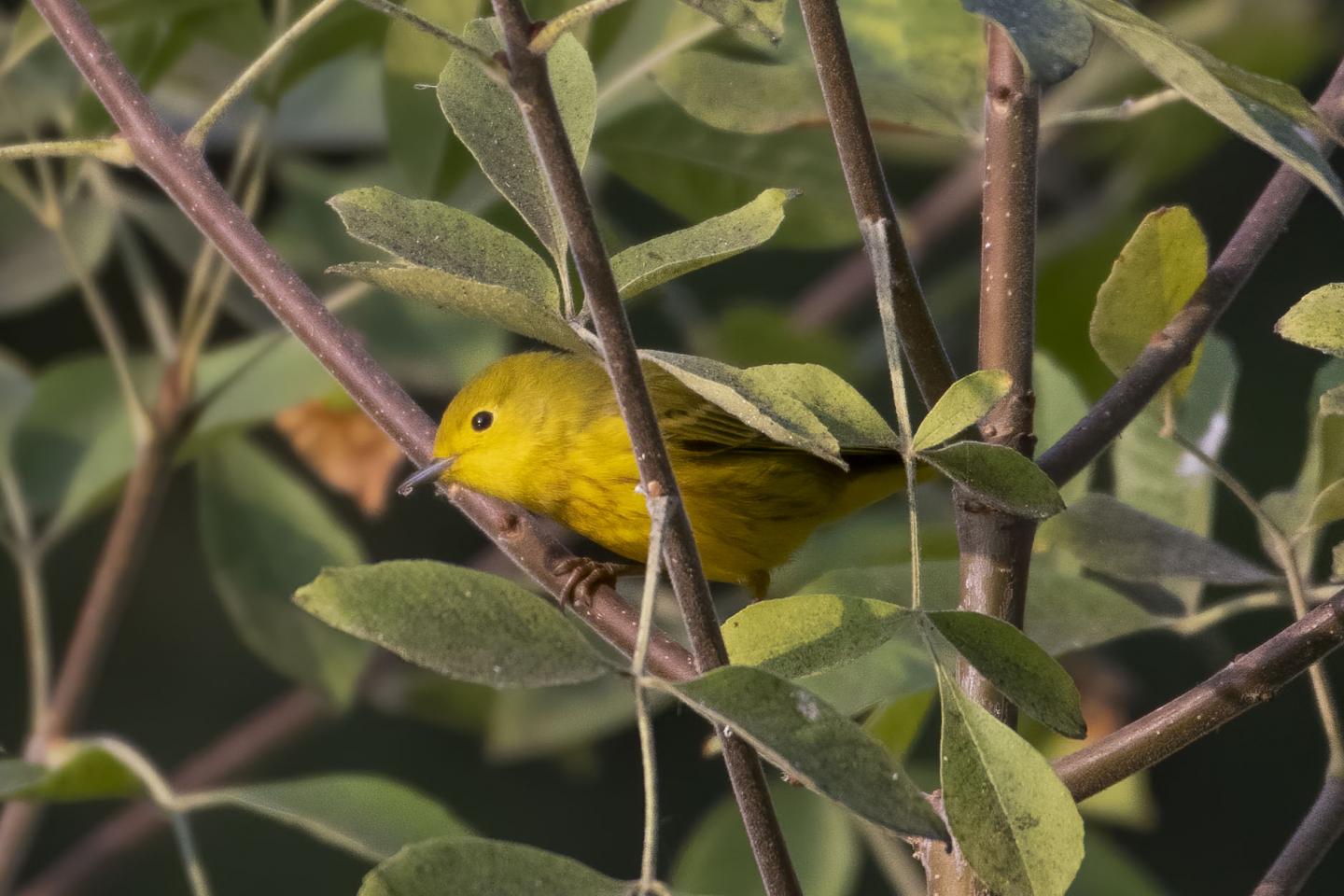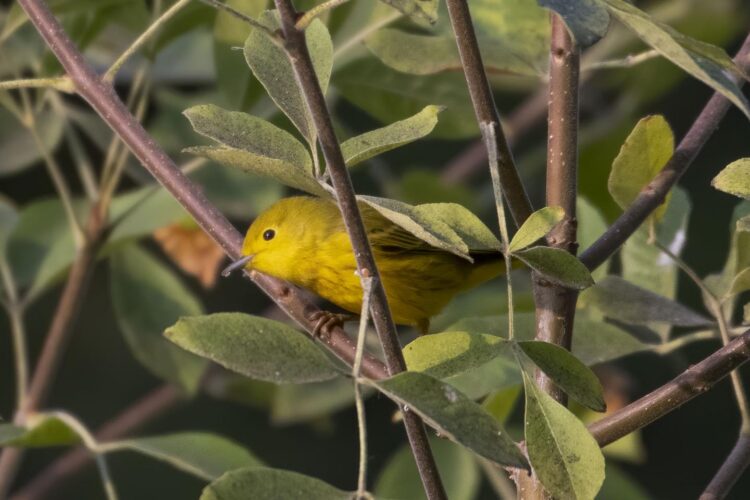
Credit: Jonathan Eisen
As climate change takes hold across the Americas, some areas will get wetter, and others will get hotter and drier. A new study of the yellow warbler, a widespread migratory songbird, shows that individuals have the same climatic preferences across their migratory range. The work is published Feb. 17 in Ecology Letters.
“What’s amazing is that the birds track similar climates despite the fact that they have migrated thousands of miles,” said Rachael Bay, assistant professor in the Department of Evolution and Ecology, College of Biological Sciences at the University of California, Davis. “It seems that individual birds may be adapted to particular climate regimes.”
Yellow warblers (Setophagia petechia) breed throughout North America and fly south to Central and South America to spend the winter. A previous study by Bay and colleagues found links between genetic variation and precipitation across North America, suggesting that certain individuals might be adapted to dry conditions while others thrive in wet conditions. In the current study, the authors were able to use genetics to predict where birds captured on their wintering grounds in Central and South America would end up breeding and compare climate patterns in their winter and summer areas.
Individual birds showed preferences for drier or wetter areas, but not for warmer or cooler areas. In other words, birds that bred in relatively dry parts of North America — such as California’s Central Valley — overwintered in dry parts of South or Central America.
“This is the first demonstration of using individual genetic tracking to link climates across the migratory cycle within a bird species,” Bay said.
Impact of climate change
This range of climatic preferences could have consequences for how the birds respond to climate change. Bay speculates that the variation she and her colleagues found might provide the raw material for the species to adapt to changing climate conditions. For example, populations that are adapted to drier conditions might displace those adapted to wetter ones. In fact, Bay and colleagues have already found that population sizes of yellow warblers changed with precipitation across years.
Bay collected data for the study during her postdoctoral research, in collaboration with banding stations and collecting sites in North and South America. Bay and her colleagues are now eager to see whether individuals of other bird species also track climate during migration.
###
Additional authors on the paper are Daniel Karp, Department of Wildlife, Fish and Conservation Biology, UC Davis; James Saracco, The Institute for Bird Populations, Petaluma, California; William Anderegg, University of Utah; Luke Frishkoff, University of Texas at Arlington; David Wiedenfeld, American Bird Conservancy, The Plains, Virginia; Thomas Smith, UCLA; and Kristen Ruegg, Colorado State University, Fort Collins.
The work was supported by grants from the National Science Foundation, National Geographic, California Energy Commission and First Solar Inc.
Media Contact
Andy Fell
[email protected]
Original Source
https:/
Related Journal Article
http://dx.





